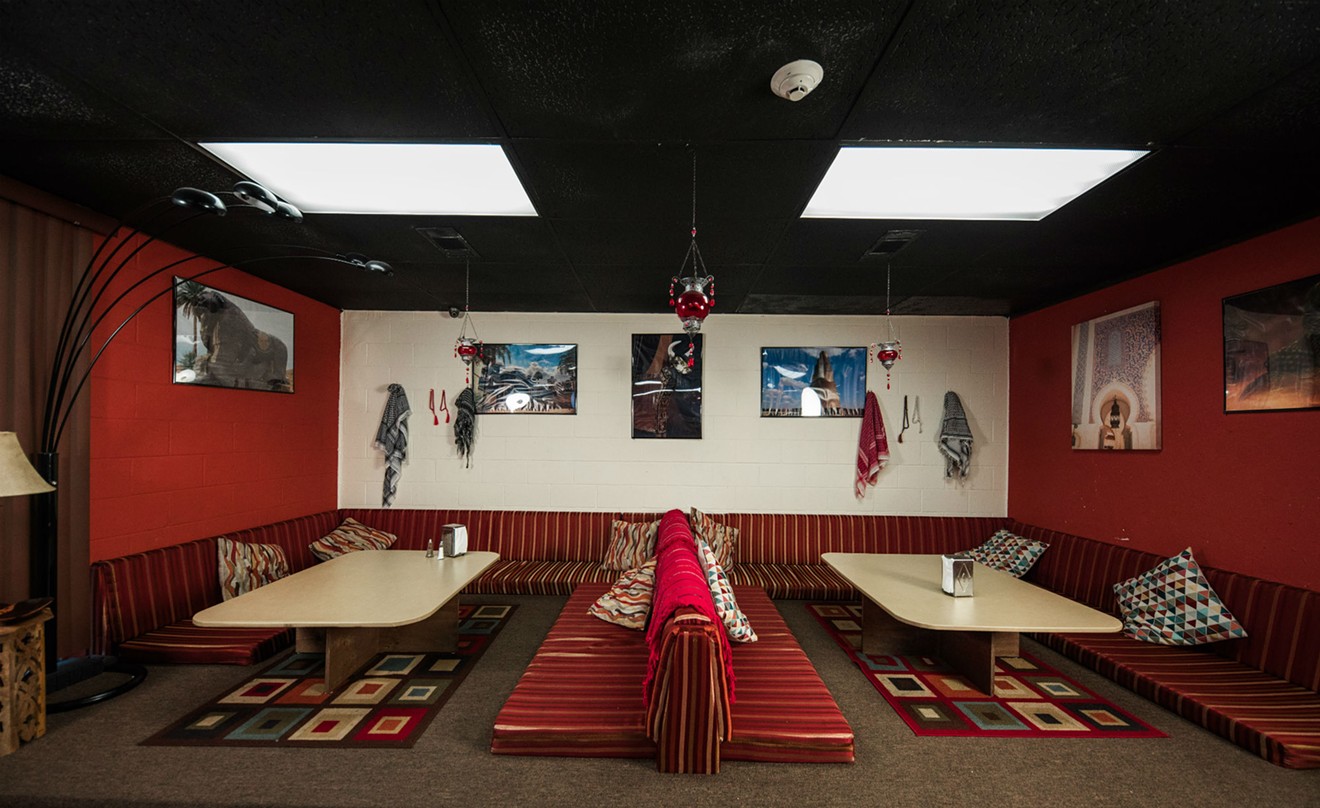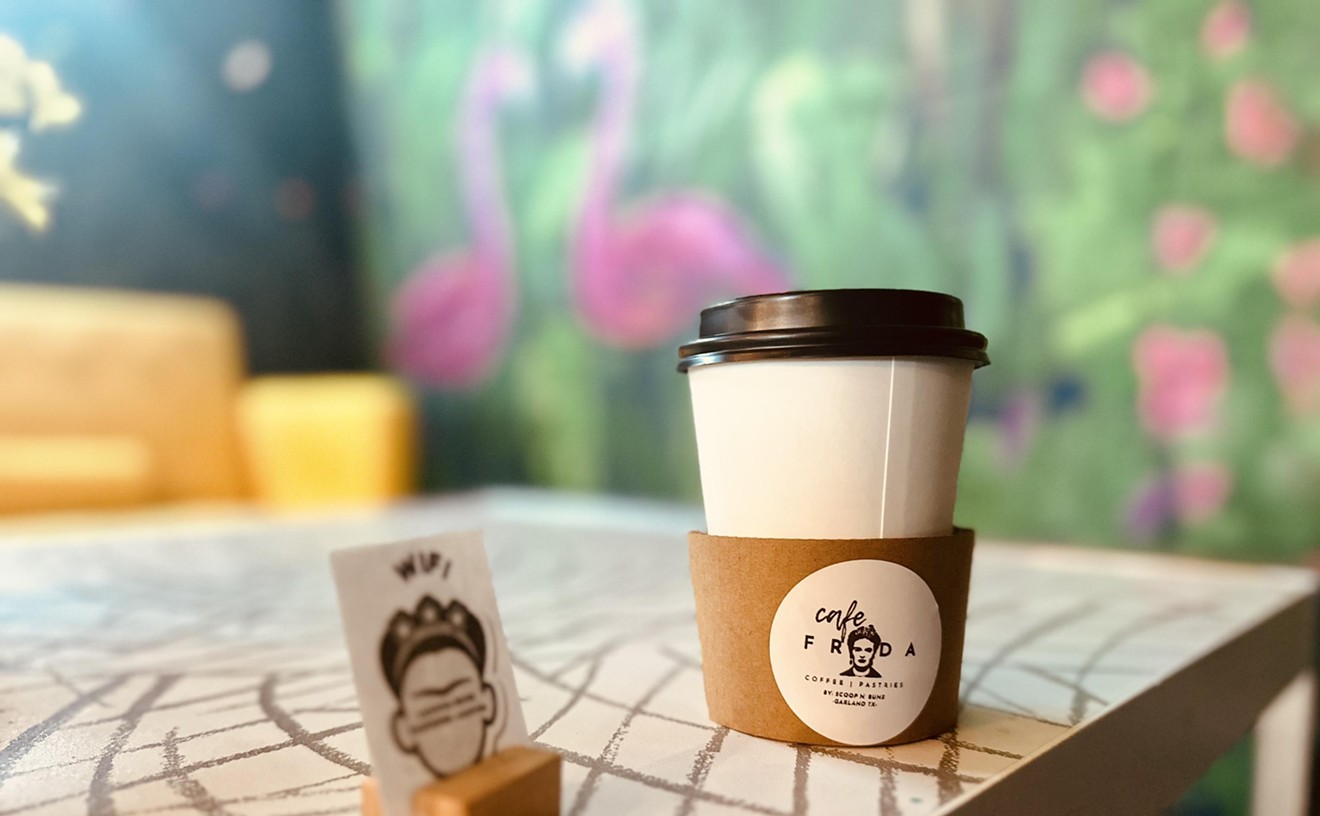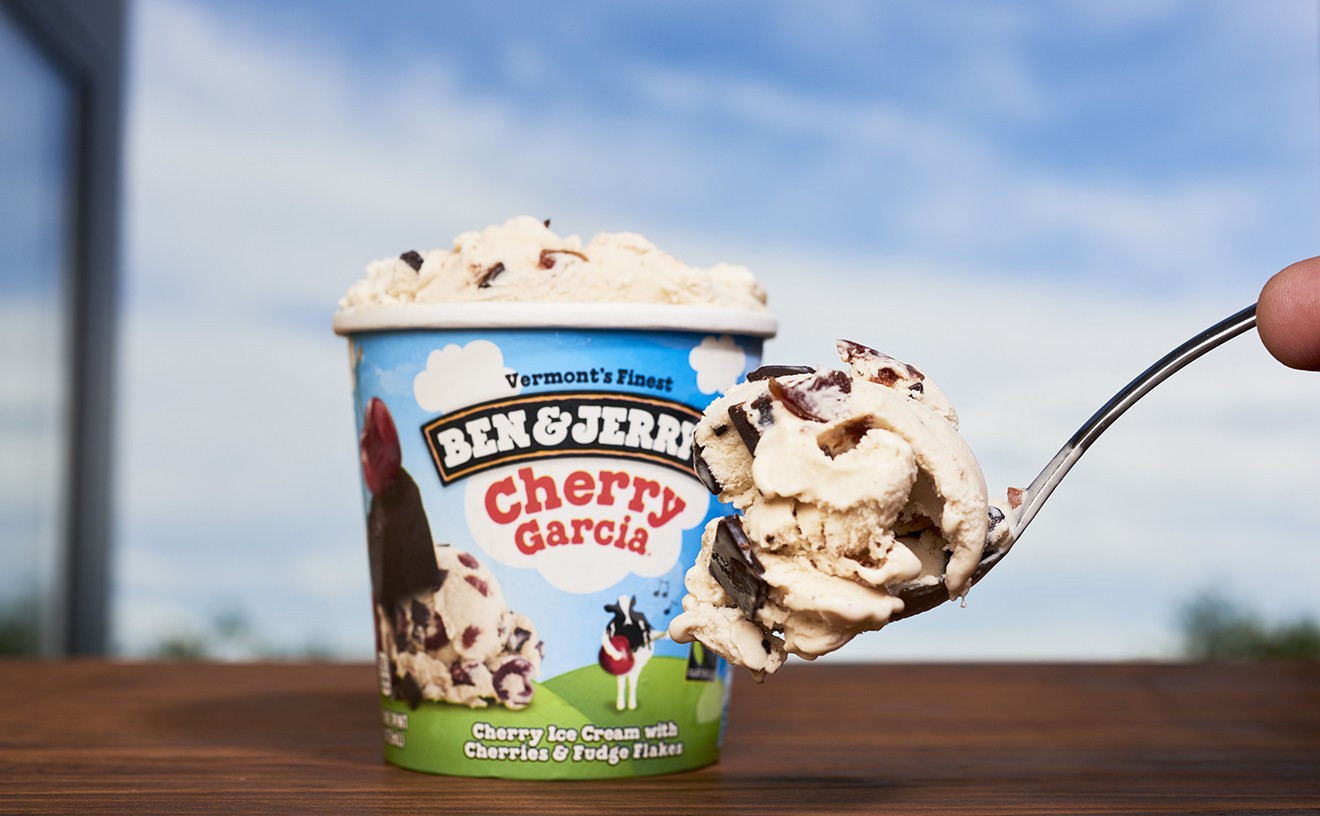The chef-owner of Fattoush Mediterranean Kitchen arrived in the United States in 2010 from Baghdad, his hometown, where he owned two restaurants serving American-style fast food. The years before his emigration from Iraq had been filled with hope and heartbreak: the surprising happiness of befriending American soldiers, the tragedy of his brother’s death in a terrorist attack, the suspense of a three-year wait for refugee status.
Al Mudhafar’s journey to Pantego began in the early days of the occupation, when American troops on patrol visited his restaurant in Baghdad, a small spot selling pizza and burgers. They kept coming back, he recalls, because they said his burgers were the best in the city, the closest they could find to the comfort foods of their homes.
The soldiers and the restaurateur struck up a friendship; he taught them how to play soccer, and they taught him PlayStation games. Eventually, he worked with the American Army on a more formal basis, visiting camp to sell goods, supplying enlisted men with everything from food to DVDs. Officers, appreciating his English skills and dependability, entrusted him with more responsibilities.
Speaking about those soldiers, Al Mudhafar says, “Between 2003 and 2004, they gave me a lot of papers. Like, this is a good guy, he helps us, we trust him. They said, keep this paper with you, some day you’re going to come to United States, and this paper will help you.”
They were right. Terrorists murdered Al Mudhafar’s brother in 2006, and the following year, he applied for refugee status, submitting the recommendation letters from his old Army acquaintances. Three years and multiple interviews later, the chef, his wife and their daughter got permission to depart.
Fattoush is the family’s second restaurant in the Arlington area. The first closed quickly, and Al Mudhafar spent years afterward cooking for others, learning how to navigate small business ownership in Texas and finding suppliers for spices and meats. That education is paying off at Fattoush, which opened in early 2017 and is now one of the best Middle Eastern restaurants in the Dallas area.
For a large dining room tucked into the corner of a strip mall, Fattoush feels surprisingly comfortable. The showpieces are two large tables for families, at which customers sit on floor cushions and and relax against banquettes with blankets. As an added welcome, many meals at Fattoush start with a cup of a superb red lentil soup that’s thick, heartening and richly spiced. It’s the perfect greeting, especially in winter weather.
And then the parade of dishes begins. Lebneh, garlicky yogurt drizzled with olive oil and showered with sumac, is an irresistible dip (small order $5, large order $7); the hummus, by contrast, feels lighter and less indulgent (small order $5, large order $7). The falafel is among the best in Texas, crisply breaded, dotted with sesame seeds and fried to order (six pieces for $5 or a dozen for $9). This falafel, like almost none other in Dallas, tastes genuinely herbaceous, its inside revealing both the bright green color and the flavor of parsley, mint, cilantro and green onion.
Al Mudhafar says everyone tells him that his falafel tastes different but that he’s only doing what he knows. When he was young, his neighbor had a falafel cart, and the boys on the street would play soccer and then eat a snack or, better yet, help with the frying.
“When I came here, I thought, let me try this falafel, the old guy’s,” he says. “I took the experience from him.” His batter is softer and wetter than most, which makes it difficult to form and cook. “Nobody likes to fry this falafel.”
One appetizer, makali, stands out on the list for its price: $20. It’s a giant fried-food sample platter featuring falafel, fried potatoes sliced in thick rounds, fried eggplant and big florets of fried cauliflower. The eggplant and potatoes are rather salty, truth be told, although this does not make them less addicting.
The main courses are a bounty. A half-chicken kozi ($13) is perfectly juicy and rubbed in a heady mix of spices that carry their flavors down to the bone. The pronunciation, “cozy,” is apt. If the dish didn’t also come with two varieties of rice pilaf, we might never stop eating the chicken.
Five grilled lamb chops arrive dusted with ground pistachios ($22). Request medium-rare or medium — Fattoush defaults to the well-done end of the spectrum, but our medium-rare order came out with a soft, tender interior and edges crisp from the charcoal grill. Along with a sample of grilled vegetables, including smoky stripes of zucchini, diners choose two sides, like the ultra-buttery rice pilaf, a sampling of hummus, a cup of lentil soup or a creamy, almost chowder-like soup with morsels of pulled chicken and strong hints of lemon and pepper.
And then there’s shish tawook ($12), the traditional kebab preparation of chicken with garlic, pepper, thyme and a squeeze of lemon juice. (Thanks to that lemon, shish tawook often looks bright yellow.) When I ate Lebanese food as a kid in Dearborn, Michigan, which has America’s largest Lebanese population by far, shish tawook was often the consolation prize, the boring, dried-out sidekick to the fun kebabs of juicy red meat.
Not so at Fattoush. The bloom of spices hits the nose immediately, an enchanting promise fully made good by the chicken itself. The meat is still tender and moist inside its chargrilled edges. It is probably the best shish tawook I have ever had.The bloom of spices hits the nose immediately, an enchanting promise fully made good by the chicken itself.
tweet this
And it’s not even my favorite dish here. That would be the Iraqi kebab made from ground lamb ($15). But I can’t pretend to be objective about this dish. Between the simple spice mix that Fattoush uses for its ground lamb — parsley, red onion, salt, not much else — and the quality of the meat, this kebab brings back overpowering memories of the lamb meatballs my Turkish family grills, memories of summers around a charcoal-fired backyard grill.
The secret, Al Mudhafar says, is the meat, which he grinds himself.
“It’s like 5 [percent] or 10 percent beef, and all the rest is lamb shoulder and lamb legs — the pieces with the fat,” he says. “I put space between the fire and the kebab. If it’s in the middle, it’s going to be on the fire, and I lose a lot of fat.
“I don’t use a lot of spices,” he explains. “I use the meat.”
Fattoush Mediterranean Kitchen is a truly remarkable restaurant, serving extraordinary lamb kebabs, falafel, chicken, lebneh and, of course, fattoush salad. Across three visits, nothing we tried was disappointing, although it is good to hear that a tandoor oven for fresh-baked bread is coming this spring.
Besides being a first-class place to eat, Fattoush is a family affair. Al Mudhafar’s wife helps with service, and their children might play in the back office after school. For this family, it’s the culmination of a journey that began decades ago, at a street-side falafel cart 7,000 miles away.
Fattoush Mediterranean Kitchen, 2304 W. Park Row Drive, Suite 25, Pantego. 682-321-7650. Open 11 a.m. to 8 p.m. Monday through Thursday, 11 a.m. to 10 p.m. Friday and Saturday, and noon to 8 p.m. Sunday.
















